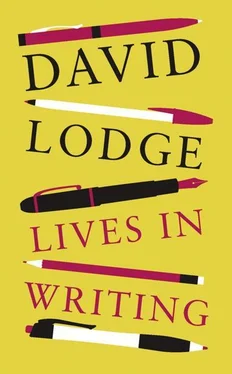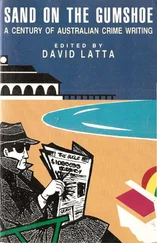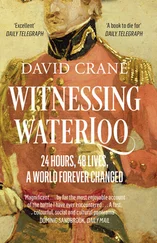The planned year with the family in Majorca did not happen. At this juncture Amis met the novelist Elizabeth Jane Howard, appropriately and fatefully at a literary festival seminar on Sex in Literature. Jane, as she was known familiarly, was posh, talented, and beautiful, in her second unhappy marriage. They began a passionate affair, perhaps his first real love affair, which eventually brought about the end of both marriages. Hilly went to Majorca with the children and Amis moved in with Jane in London. In due course they occupied a rather grand house on the northern outskirts of London called Lemmons and looked after Amis’s two boys, Philip and Martin, while Hilly had custody of Sally. For a while everything went swimmingly. Amis continued to turn out novels every two years or so, some of them clever exercises in genre fiction, like The Green Man (1969) a ghost story, The Riverside Villas Murder (1973) a period whodunit, and The Alteration (1976) an alternative-world tale. Over the same period Amis renounced his early socialist leanings and — partly under the influence of his old friend the historian Robert Conquest (whose First Law was ‘everybody is reactionary on subjects they know about’) and partly out of a mischievous delight in bucking the cultural trend — became a notorious media pundit of right-wing views, supporting the American war in Vietnam and opposing the expansion of university education with the slogan, ‘More will mean Worse’. Meanwhile Jane bore the brunt of maintaining a country house lifestyle without adequate funds, and got very little writing done herself. Fault lines developed in the marriage. Amis was drinking heavily, with damaging effects on his libido which sex therapy failed to cure — an experience he explored with astonishing candour in Jake’s Thing (1978). Reading this book Jane came to the conclusion that he not only didn’t love her any more, but didn’t much like her, and after a couple more years of increasingly acrimonious relations, she left him.
Amis’s physical health and morale declined steeply. Only the lifelong discipline of writing every morning between breakfast and the first drink at noon kept him going. Even so, it took him four years instead of his usual two to produce a new novel, and Stanley and the Women (1984) proved so bitterly (and craftily) misogynist that some women publishers in America did their best to suppress the book. To excessive drinking he added excessive eating, and grew obese. He had a fall and broke his leg. He desperately needed someone to look after him, and providentially Hilly, now married to an impecunious member of the House of Lords, Alastair Kilmarnock, was willing to take on the job in return for living rent-free with her husband in Amis’s house. Martin attributes to Hilly’s return his father’s recovery from the slough of despond into which Jane’s departure had pitched him, evidenced by the more balanced (though still quite dark) treatment of sexuality and gender in The Old Devils (1986), and Difficulties with Girls (1988).
With the award of the Booker Prize for the first of these books and a knighthood in 1990, Sir Kingsley Amis was set up to become a grand old man of English letters, but his last years were not serene. He developed a ‘late style’ which was almost as syntactically intricate as Henry James’s, but without the latter’s compensatory poetic eloquence or the wit of his own earlier novels, and previously loyal readers began to desert him. Drink continued to damage his body and could not exorcise his inner demons. His final illness was a distressing combination of physical collapse and mental derangement. Martin recalled that he and Philip, keeping watch beside the hospital bed of their apparently comatose father, were startled to hear him suddenly say, ‘I am in hell.’ Fundamentalist Christian moralists would no doubt see his unhappy end as divine punishment of an impenitent sinner, but his case was more complex and more interesting than that.
Not long before his death in October 1995 I spoke at a provincial literary festival a day or two after Kingsley Amis, and read by chance an interview with him in the local newspaper in which he shocked the young woman journalist by his aggressive, alcohol-fuelled responses to her innocent questions, snarling at one point: ‘There is no God and life is absurd.’ At his memorial service, Martin recalled his father’s encounter with the Russian poet Yevgeny Yevtushenko, who said, ‘You atheist?’ and Kingsley replied, ‘Well, yes, but it’s more that I hate him.’ In a 1987 essay entitled ‘Godforsaken’ he declared that ‘human beings without faith are the poorer for it in every part of their lives’. Putting these disparate sentiments together we might deduce that Amis saw the world as a very dark place which was intolerable without transcendence, in the possibility of which he could not believe. The novel in which he explored most frankly the personal implications of this metaphysical double-bind was One Fat Englishman .
In 1963, when I was a young university lecturer, I published an essay in the Critical Quarterly entitled ‘The Modern, the Contemporary, and the Importance of Being Amis’, one of the earliest articles about the work of Kingsley Amis to appear in an academic journal, in which I discussed his four novels, from Lucky Jim to Take a Girl Like You. One Fat Englishman was published in the same year, too late to be included, but when I reprinted my essay in a book called Language of Fiction , in 1966, I did not extend it to discuss that novel. The reason for this silence was that I was uncertain what to make of One Fat Englishman , and it certainly didn’t fit the general drift of my argument. I hadn’t really enjoyed reading it, and enjoyment was very much at the heart of my interest in Amis’s earlier fiction. Those books, I wrote, ‘speak to me in an idiom, a tone of voice, to which I respond with immediate understanding and pleasure’. Their heroes were quick to identify and satirically subvert any hint of pretension, affectation, snobbery, vanity, and hypocrisy in public and private life. What they stood for is most simply described as ‘decency’, and when they didn’t live up to their own code they felt appropriate remorse. The least ethical of these heroes, Patrick Standish in Take a Girl Like You , is partly redeemed by his attraction to the transparently decent heroine, Jenny Bunn, whose point of view complements and balances his.
Roger Micheldene, the corpulent British publisher whose adventures on a brief business trip to America are chronicled in One Fat Englishman , is a very different character. He is rude, arrogant, snobbish, lecherous, treacherous, greedy and totally selfish. While trying to revive an affair with Helene, the wife of a Danish philologist, he grabs every opportunity to copulate with other available women. His thoughts, and often his speech, are crammed with offensive observations about Jews, Negroes, women, homosexuals and Americans in general. He eats like a pig and drinks like a fish. He is quite conscious of these traits and habits, and perversely proud of them: ‘Of the seven deadly sins, Roger considered himself qualified in gluttony, sloth and lust, but distinguished in anger.’
The story punishes Roger for his sins by submitting him to a series of farcical humiliations, and eventually he is sent home with his tail between his legs. But he is the hero, or anti-hero, of the novel, whose consciousness totally dominates it and with whom the authorial voice is rhetorically in collusion. That is to say, his obnoxious opinions and reactions are articulated through the same distinctive stylistic devices that were associated with the earlier and more amiable Amis heroes. The reader may guiltily catch himself sniggering at lines like: ‘At this evasion a part of Roger. . wanted to step forward and give Helene a medium-weight slap across the chops’ or ‘a girl of Oriental appearance who would have been quite acceptable if she had had eye sockets as well as eyes’. In 1963, knowing little about Kingsley Amis except through his writings, I was puzzled to know why he had taken such pains to create this vividly unpleasant character. In my memory, most other fans of his work were equally baffled and disappointed. But in the light of Amis’s subsequent literary development, and all the biographical information that has emerged since his death, One Fat Englishman seems a much more comprehensible and interesting novel — also funnier, in its black way — than I remembered on first reading it. It now seems obvious that Roger Micheldene was in several respects a devastating and prophetic self-portrait.
Читать дальше












